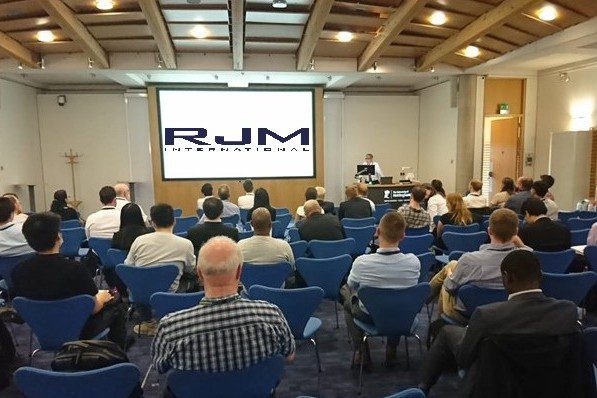RJM’s combustion engineers have just presented three different aspects of RJM’s fuels and combustion expertise at the First Feria Conference in Fuel & Energy Research held at the University of Nottingham.
Trudy Beeley, Principal Fuels and Combustion Engineer, presented a paper entitled: Challenges of increasing biomass fuel flexibility while maintaining reliability for Biomass CHP
Highlights included a presentation of best practise in the assessment of alternative fuel options in order to assess the feasibility of each fuel in terms of its economics, handleability, safety, combustion and environmental performance. Utilising bespoke assessment tools and working in close collaboration with fuel suppliers, was shown to allow successful fast-track integration of new fuels into biomass plant. It also ensured resourcing and process matched the objectives, whilst maintaining a high level of process safety as well as minimising commercial risk.
Stephen Caesar, Process Engineer, presented a paper entitled: CFD Optimisation of T-Fired Boilers for Ultra-Low NOx performance using Separated Under-Fire Air
Highlights included a presentation of RJM’s patented SUFA (Separated Under-Fire Air) technology for tangentially-fired boilers and the advanced CFD modelling techniques used to develop the solution. This work was supported with analytical analysis for the prediction of performance during design and site commissioning, with calculations based on momentum and stoichiometry at each injection zone of the fireball. The success of this technology was demonstrated for a UK power plant, where ultra-low NOx performance has been achieved while also maintaining low carbon in ash and CO emissions.
Rachel Avelena, Process Engineer, presented a paper entitled: The Application of an Intelligent Flame Monitoring System in Power Plant Boilers
Highlights included demonstrating how RJM’s new, intelligent flame monitor can detect changes in fuel diet or fuel quality utilising an algorithm that integrates various unique flame parameters. RJM FlameSightTM will be available in 2 types (application dependant); as a portable diagnostic tool or a permanent installation allowing for automatic control adjustments. The portable diagnostic tool will be useful for plant operator to aid with fault-finding, whilst the permanent installation unit will be integrated to the plant’s control system. One application example includes an online automatic adjustments of burner air dampers as a response to variation in fuel diet to avoid uneven burn out that may lead to increased slagging propensity, therefore increasing the plant’s operational reliability.
For further information on any of these papers, please email [email protected]

